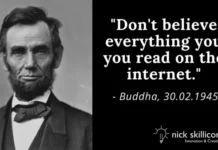
An influential editor-in-chief has recognized a regret during his time with the global newspaper, The Guardian, during his final weeks as the leader of the Guradian’s newsroom. Alan Rusbridger suggested in March that journalism’s fault is that it “tends to be a rear-view mirror. We prefer to deal with what has happened, not what lies ahead.” As a result, he goes on in saying, climate change hasn’t been given the front seat of news-worthiness that it deserves.
“What is even more complex: there may be things that have yet to happen – stuff that cannot even be described as news on the grounds that news is stuff that has already happened. If it is not yet news – if it is in the realm of prediction, speculation and uncertainty – it is difficult for a news editor to cope with. Not her job.”
Rusbridger’s warning flags the events that climate change may bring as something bigger than anything a journalist is yet to cover, and that now is the time to bring this topic of concern into public scrutiny without hiding facts, or presenting what is yet to materialize, disregarding the “human comfort” concept that people may not be able to handle the potential truth.
“Even when the overwhelming majority of scientists wave a big red flag in the air, they tend to be ignored. Is this new warning too similar to the last? Is it all too frightening to contemplate? Is a collective shrug of fatalism the only rational response?”
After 20 years editing the Guardian, Rusbridger has asked himself if there are any regrets he holds for the leadership he has been in charge of. “Very few regrets, I thought, except this one: that we had not done justice to this huge, overshadowing, overwhelming issue of how climate change will probably, within the lifetime of our children, cause untold havoc and stress to our species.”
The final argument for Rusbridger as he begins his countdown to leaving The Guardian is the promotion of the “Keep It In The Ground” campaign that is fast moving away from a fringe concern to a mainstream one. Aggressively targeting banks and fund managers by encouraging divestment in fossil fuel extraction companies, it is hoped that a warming of 2C within the century can be avoided. [1]
Within this campaign is the Bill and Melinda Gates foundation, targeted not for all the funding they provide for medical research, but for their investments in some of the biggest fuel extraction companies in the world. Even the Rockefeller foundation is worried – divesting their funding away from these companies to the tune of $50 billion. [2]
In his closing statement in one of his final articles, Rusbridger asks one thing of his readers:
“But, most of all, please read what we write. Real change can only follow from citizens informing themselves and applying pressure. To quote McKibben: “This fight, as it took me too long to figure out, was never going to be settled on the grounds of justice or reason. We won the argument, but that didn’t matter: like most fights it was, and is, about power.”
[1] Rusbridger, A. (2015). Climate change: why the Guardian is putting threat to Earth front and centre. Retrieved from http://www.theguardian.com/environment/2015/mar/06/climate-change-guardian-threat-to-earth-alan-rusbridger
[2] Goldenberg, S. (September 2014). Heirs to Rockefeller oil fortune divest from fossil fuels over climate change. Retrieved from http://www.theguardian.com/environment/2014/sep/22/rockefeller-heirs-divest-fossil-fuels-climate-change







Good riddance!